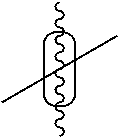Degradable and Recyclable Epoxy Conductive Adhesive as well as Preparing, Degrading and Recycling Methods therefor
- Summary
- Abstract
- Description
- Claims
- Application Information
AI Technical Summary
Benefits of technology
Problems solved by technology
Method used
Image
Examples
example 2
[0060](1) First dissolving 1.5 g of a vinyltriethoxysilane coupling agent in 20 g of a butanone solvent, then adding 2 g of graphene while adding 40 g of a butanone solvent, and mixing with graphene, placing the mixed solution in a magnetic stirrer, stirring and heating for 1 hour, controlling the heating temperature at 30° C., subjecting the mixed solution to ultrasonic processing for 1 hour after the magnetic stirring, standing still for 12 hours, centrifuging the upper suspension of the mixed solution, distilling to obtain a graphene solution.
[0061](2) Dissolving 1 g of a butyl glycidyl ether diluent, 5 g of a curing agent B and 16 g of a bisphenol A828 epoxy resin in a butanone solvent, stirring at 30° C. for 15 minutes, adding 3 g of a graphene solution, continuing to stir for 20 minutes, adding 80 g of flaky silver (2 μm), subjecting to ultrasonic dispersion at 30° C. for 60 minutes to obtain a conductive adhesive.
example 3
[0062](1) First dissolving 1.5 g of a vinyltriethoxysilane coupling agent in 20 g of a butanone solvent, then adding 2 g of graphene while adding 40 g of a butanone solvent, and mixing with graphene, placing the mixed solution in a magnetic stirrer, stirring and heating for 1 hour, controlling the heating temperature at 50° C., subjecting the mixed solution to ultrasonic processing for 3 hours after the magnetic stirring, standing still for 1 hours, centrifuging the upper suspension of the mixed solution, distilling to obtain a graphene solution.
[0063](2) Dissolving 1 g of a butyl glycidyl ether diluent, 5 g of a curing agent C and 16 g of a bisphenol A828 epoxy resin in a butanone solvent, stirring at 50° C. for 10 minutes, adding 3 g of a graphene solution, continuing to stir for 30 minutes, adding 80 g of flaky silver (2 μm), subjecting to ultrasonic dispersion at 30° C. for 120 minutes to obtain a conductive adhesive.
PUM
| Property | Measurement | Unit |
|---|---|---|
| Temperature | aaaaa | aaaaa |
| Temperature | aaaaa | aaaaa |
| Temperature | aaaaa | aaaaa |
Abstract
Description
Claims
Application Information
 Login to View More
Login to View More - R&D
- Intellectual Property
- Life Sciences
- Materials
- Tech Scout
- Unparalleled Data Quality
- Higher Quality Content
- 60% Fewer Hallucinations
Browse by: Latest US Patents, China's latest patents, Technical Efficacy Thesaurus, Application Domain, Technology Topic, Popular Technical Reports.
© 2025 PatSnap. All rights reserved.Legal|Privacy policy|Modern Slavery Act Transparency Statement|Sitemap|About US| Contact US: help@patsnap.com



